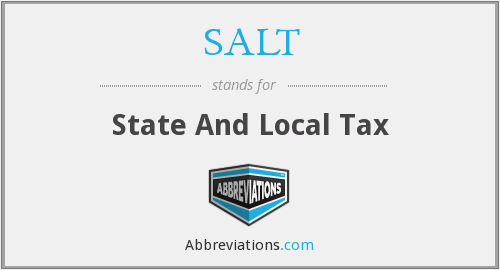SkyBridge produces the SkyBridge Alternatives Conference, or « SALT » Conference, a capital introduction convention. In addition to its annual flagship event in Las Vegas, SALT has hosted conferences in Singapore, Tokyo and Abu Dhabi. It has offices located in New York and Florida.
Similarly Is SkyBridge capital publicly traded? SkyBridge Opportunity Zone REIT (“SOZ REIT”) is a private, non-exchange traded real estate investment trust (“REIT”) with a mandate to invest in residential, commercial and industrial real estate in U.S. Treasury-certified Opportunity Zones.
What is Salt short for? The acronym SALT stands for state and local tax and generally is associated with the federal income tax deduction for state and local taxes available to taxpayers who itemize their deductions.
Additionally, Where does salt come from?
Salt comes from two main sources: sea water and the sodium chloride mineral halite (also known as rock salt). Rock salt occurs in vast beds of sedimentary evaporite minerals that result from the drying up of enclosed lakes, playas, and seas.
Can you invest in SkyBridge?
SkyBridge registered funds of hedge funds are structured as onshore Delaware LLCs that are taxed as regulated investment companies (RIC). The registered funds have modest minimum investment requirements and are accessible to a broad range of suitable investors. An Investment in a Fund is Not Suitable for All Investors.
How many employees does SkyBridge have? How many employees does Skybridge Americas have? Skybridge Americas has 501 to 1,000 employees.
Who invented table salt? Early hunters could get a steady supply of salt from meat, but agricultural groups had to seek it out by following animal tracks to salt deposits. The Egyptians were the first to realize the preservation possibilities of salt.
What does ska mean? SKA
| Acronym | Definition |
|---|---|
| SKA | Skills, Knowledge & Ability |
| SKA | Skates (FAO fish species code) |
| SKA | Southern Kingfish Association |
| SKA | Small Kitchen Appliances |
What does salt stand for in the Bible?
The Bible contains numerous references to salt. In various contexts, it is used metaphorically to signify permanence, loyalty, durability, fidelity, usefulness, value, and purification.
Will we ever run out of salt? Between mined salt & sea salt, it’s unlikely that this mineral resource will run out. Unlike minerals like diamonds & other rare gems that take millenia to form naturally, salt takes relatively little time. It’s also available in many parts of the globe on land.
Who invented salt?
The Egyptians were the first to realize the preservation possibilities of salt. Sodium draws the bacteria-causing moisture out of foods, drying them and making it possible to store meat without refrigeration for extended periods of time.
Can you make your own salt? For a fun summertime project, you can make your own sea salt. It takes some time (days, actually), but then you’ll be able to tell dinner guests that you made your own salt. (Worth it.)
Who first ate salt?
Human cultivation of salt is ancient, and the earliest known salt harvesting is believed to have occurred at Lake Yuncheng, in the Chinese province of Shanxi around 6000 BC.
How did our ancestors get sodium?
Early human hunters obtained their salt from eating animal meat. As they turned to agriculture and the diet changed, they found that salt (maybe as sea water) gave vegetables the same salty flavour they were accustomed to with meat.
Is salt good for body? You might think this should mean you need to cut out salt completely, but salt is actually an important nutrient for the human body. Your body uses salt to balance fluids in the blood and maintain healthy blood pressure, and it is also essential for nerve and muscle function.
What does ska stand for seniors? Seniors often use an acronym to encapsulate the glory of our remaining moments: “SKA.” It stands for “seniors kick you-know-what,” and it’s a uniquely North Texas saying.
Where did ska originate?
Pioneered by the operators of powerful mobile discos called sound systems, ska evolved in the late 1950s from an early Jamaican form of rhythm and blues that emulated American rhythm and blues, especially that produced in New Orleans, Louisiana.
Is ska an offbeat? Ska is characterized by a walking bass line accented with rhythms on the off beat. It was developed in Jamaica in the 1960s when Stranger Cole, Prince Buster, Clement « Coxsone » Dodd, and Duke Reid formed sound systems to play American rhythm and blues and then began recording their own songs.
Why did Elisha put salt in the water?
The city’s water source was polluted and harmful, bringing sickness, death, and barrenness. In this context, Elisha performs a miracle. God tells him to throw salt in the water. God, in His mercy, then uses the salt to heal the water so that it becomes wholesome and life giving.
How does salt purify? Margueritte proposes for purifying it consist simply in fusing the raw salt, and keeping it for some time in a state of tranquil fusion, decanting it into hot molds, or letting it cool slowly ; in this manner all the impurities are separated from the mass in fusion, and are eliminated by crystallization by the dry …
Why did they rub salt on newborns?
The newborn infant, then,6 free from defect in his entire constitution, should first be powdered moderately [with salt] and wrapped in swaddling-clothes, in order that his skin may be made thicker and firmer than the parts within.
Will Oxygen ever run out? When will Earth run out of oxygen? A study published in the journal Nature Geoscience and accredited to Kazumi Ozaki and Christopher T. … The extrapolated data from these simulations determined that Earth will lose its oxygen-rich atmosphere in approximately 1 billion years. That’s the good news.
Will the world run out of water?
While our planet as a whole may never run out of water, it’s important to remember that clean freshwater is not always available where and when humans need it. … More than a billion people live without enough safe, clean water. Also, every drop of water that we use continues through the water cycle.
Which sea has no salt?
| Dead Sea | |
|---|---|
| Primary outflows | None |
| Catchment area | 41,650 km 2 (16,080 sq mi) |
| Basin countries | Israel, Jordan, and Palestine |
| Max. length | 50 km (31 mi) (northern basin only) |





